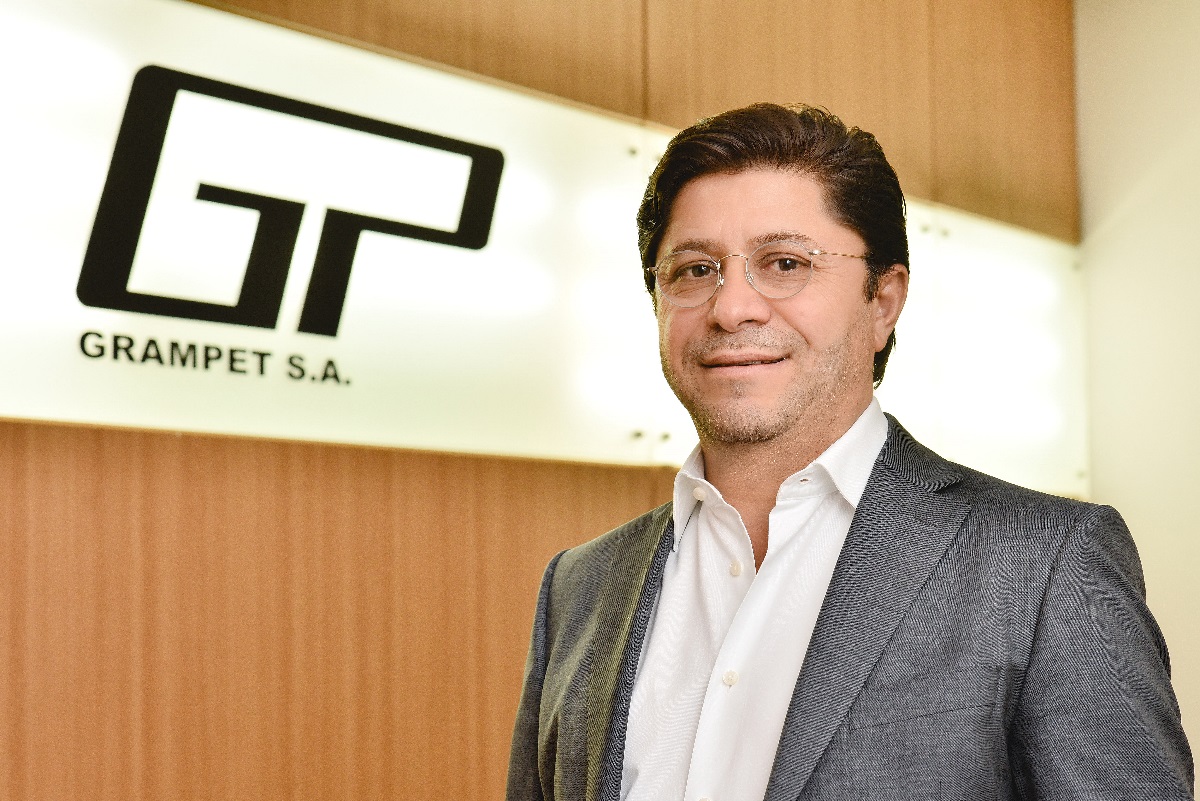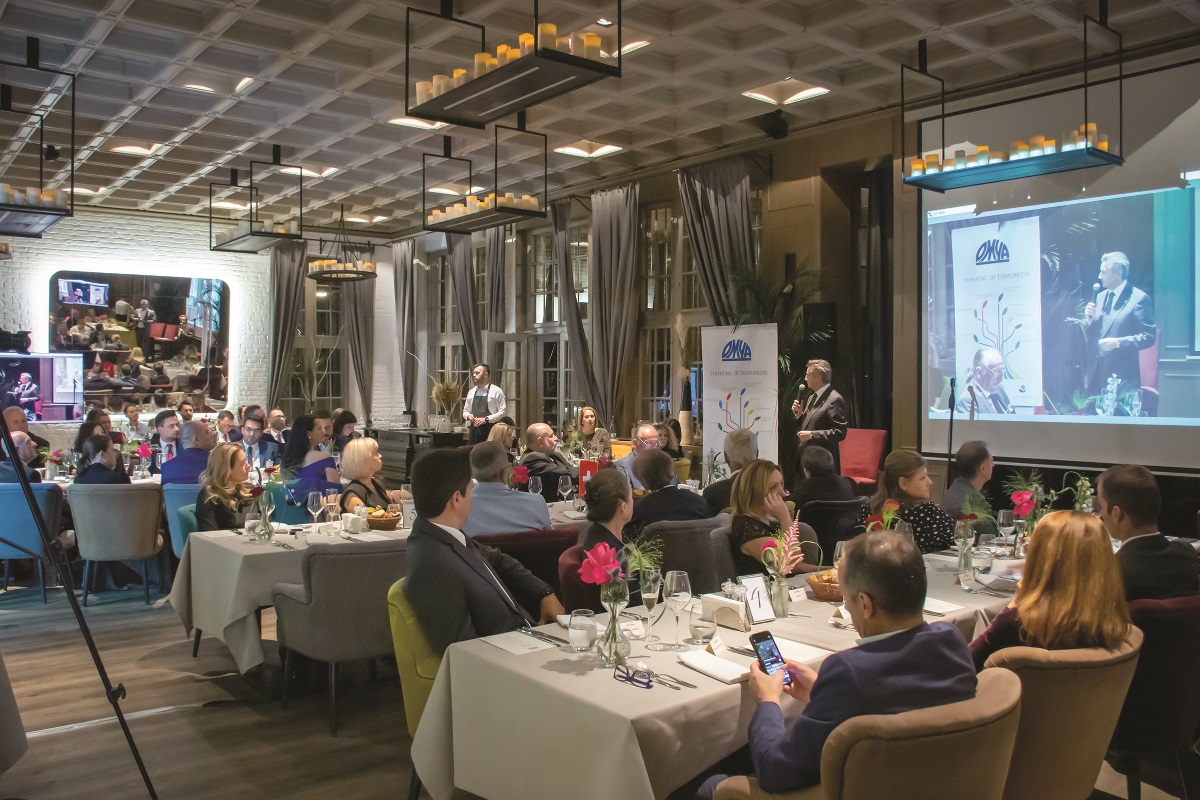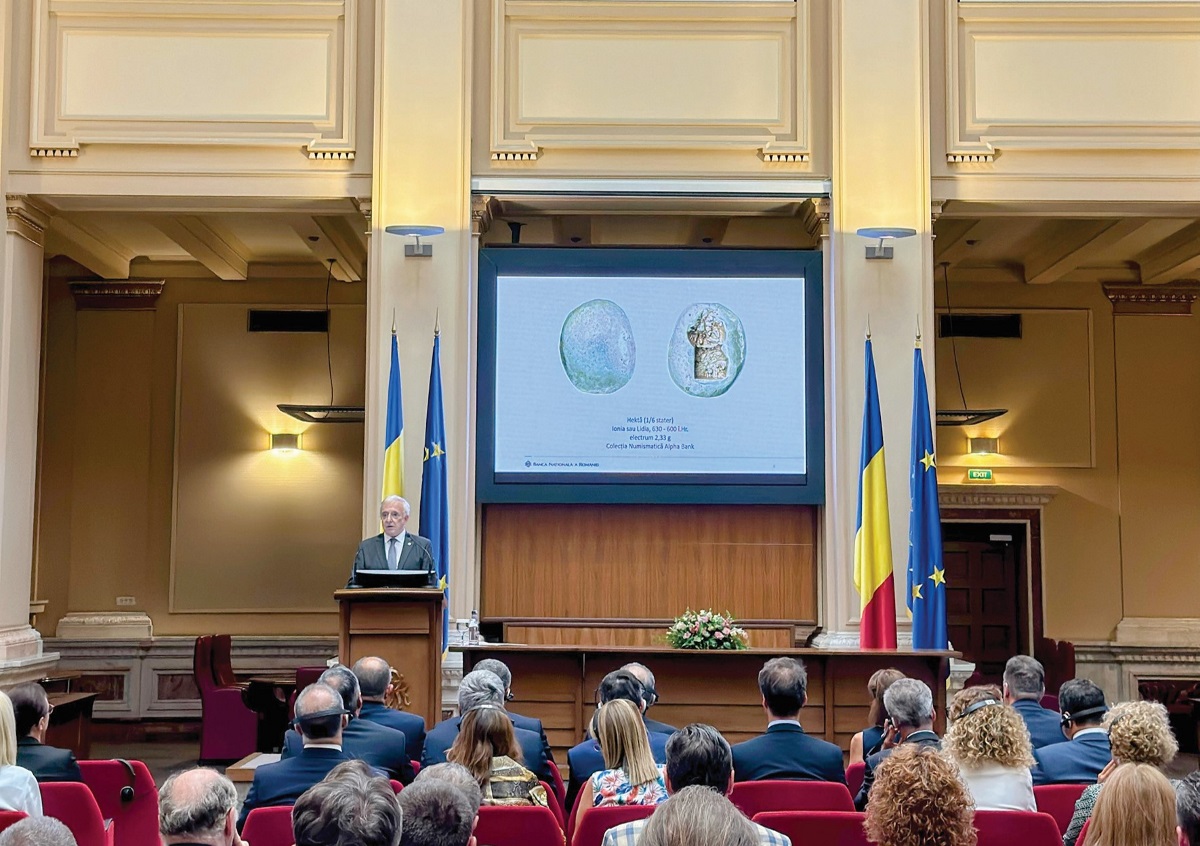
Living in interesting times / Time to update the CV: a look back at three years in the Chair of the BRCC
Author: Neil McGregor, Immediate past Chair, Vice-Chair for Corporate Governance & Relations BRCC
Writing in February 2022 it is at first difficult to recall the situation back in November 2018 when I took over the Chair the British Romanian Chamber of Commerce from Colin Lovering. There were female prime ministers in both the UK and in Romania, Theresa May and Viorica Dăncilă respectively. Negotiations between the UK and the EU were still ongoing, but BREXIT had yet to happen. In common with many other bilateral British chambers of commerce around the world, the Chamber’s main activity was trade promotion, funded by a grant from the UK’s Department for International Trade (the DIT), with a cost base to match. We were members of the Council of British Chambers of Commerce in Europe, known as “COBCOE”, with whom we had relatively little interaction. Even if we knew what “COBCOE” was, the acronym “COVID” was yet unknown to us and life was what we once regarded as “normal”. Most of the Chamber’s offering to members consisted of face-to-face events in Bucharest, with fewer such events in Cluj-Napoca and London. Chamber Board meetings were also usually face-to-face in Bucharest with annual meetings in London and Cluj-Napoca: attempts at making hybrid meetings productive were not particularly satisfactory.
What a difference to where we are now! My three-year term in the Chair seems to have gone by relatively quickly, but the challenges which have arisen during that period have made for an eventful time. It has certainly not been a sinecure – if ever a volunteer role can be called such. I can say that I have made some mistakes, met many interesting and inspiring people and have learned a lot from them and from the situations with which I have had to deal. Despite the challenge of re-inventing the Chamber as a purely members’ organisation after the end of the DIT grant and the turbulence and frustrations of the pandemic, I am pleased that I have been able to pass on the role of Chair at the end of my term of office with the BRCC facing a more settled future than when I started.
I have worked for a variety of Chairs over the years, as an external lawyer, as company secretary and as a non-executive director, in entities ranging from listed companies, through significant charities to SMEs – of which last-mentioned the BRCC is one by virtue of the Chamber’s assets and annual turnover. I have tried to emulate what I considered to be good practice by those Chairs, but life always seems to have another set of surprises in store. Perhaps the largest one which I have had in the last three years was to have someone tell me that he would not join the Chamber because he did not want his membership subscription to pay my salary as Chair of the BRCC…
Although the role is non-executive and undertaken on a volunteer basis, it can easily begin to resemble a full-time job if you allow it to, so perhaps the assumption that it is a paid position becomes more reasonable when seen in that light and a comparison is drawn with Chairs of Romanian Chambers of Commerce.
My view is that an organisation which depends on one person as the “leader” is unlikely to be sustainable in the long term, or even in the medium term: no-one is immortal or irreplaceable. The advantages of a non-executive Board of Directors as the leadership of an organisation such as the BRCC is that it can offer a diverse range of views held by its members, as well as a degree of continuity – new members join the Board as others leave it, but there is always a Board in place. Just as no-one is irreplaceable, no-one has a monopoly on all of the good ideas and it is the responsibility of the Chair to ensure that directors are able to debate freely and openly the strategy which the organisation is to follow, as well as selecting the person or persons with executive power to implement that strategy and holding them accountable for implementing the agreed strategy.
A Board meeting should not however become an echo chamber where all of the directors essentially agree with each other and no-one challenges the executives – or each other – to do better in achieving the organisation’s aims. In practice this means that for a productive Board meeting to take place, it is necessary for there to be preparatory discussions to identify useful ideas and to assess which of them may be worthwhile to bring to the Board for discussion. It is however important that the Board should not become a mere “talking shop” and the Chair should ensure that it considers and takes decisions for furthering the organisation’s aims.
How well I have been able to put these principles into practice during my time in the Chair of the BRCC, I will leave others to assess. I will certainly admit that whilst wishing to ensure that everyone had a chance to put their opinion, I probably let BRCC Board meetings last too long for an organisation where all the directors have other jobs to do.
Having mentioned my fellow-directors, I must acknowledge all of the effort which has been put in by them for the success of the BRCC. Not only do they serve on the Board but some of them do far more than just being a director, by undertaking what are essentially executive roles in support of the Chamber’s full-time and part-time staff. The Chamber’s transformation from an organisation with a high-cost base and an imminent major loss of income through the DIT’s withdrawal of trade promotion grants to chambers of commerce from when I went into the Chair, into the leaner and more purposeful members’ organisation of today, could not have happened without such efforts.
Not all of the paid staff who were with the Chamber when I went into the Chair are still with us today. To those that have moved on, and to those who remain with us, I say a heartfelt “thank you” for all of your efforts. The paid staff have been supplemented by a succession of very talented interns, from whom we have learned much and who I hope have found their time with the Chamber a useful step up in their careers. I am particularly pleased that in developing the relationship between the Chamber and the Corporation of the City of London, we are back in contact with one of our former interns who is now with the Corporation.
There is no denying that the cessation of the DIT’s trade promotion scheme and the cessation of the grant which paid for most of the Chamber’s operations until 2019 caused a crisis for the Chamber. The COVID pandemic has of course been a crisis not only for the Chamber but for many of our members. There is a saying that a crisis is an opportunity which should never be wasted and I think that the BRCC has made full use of both. The Chamber has rediscovered our core business as a members’ organisation: we will happily promote trade and investment between the UK and Romania, but our priority is growing our membership base by developing business opportunities for our members. The pandemic caused a halt in the Chamber’s programme of face-to-face events for members, but we found that we were able to offer members (and potential members) with a wide-ranging programme of online webinars and events including virtual trade missions, accessible to all of our members wherever they happen to be located. At the level of the Board, our meetings moved to be primarily online. It was a challenge to get used to it, but given that we now have directors spread between Bucharest, Cluj-Napoca and London, it was essential for us to overcome the difficulties which we had previously had with hybrid meetings.
Some might class BREXIT in the same category as these difficulties, but I would see it more as a challenge than a crisis. Whatever each of us may think of the rights and wrongs of BREXIT – and of the manner in which it was achieved – this change has been a driver for the Chamber to hold more joint events with other bilateral chambers in Romania to explain that the UK was not withdrawing from Europe, giving new opportunities for our respective memberships to meet and explore doing business together. From my own point of view, the questions which were put to me by my counterparts in the chairs of other bilateral chambers in Romania on how I had voted came as something of a wake-up call. Explaining to Romanians and to other expatriates in Romania – whose voting rights in their home countries are based on citizenship, not residence – why it was reasonable that I did not have a vote in a referendum which obviously affected me directly (or in the Scottish referendum, for that matter) was extremely difficult and I do not think that I succeeded in convincing them – or myself. Be that as it may, it is good to see that following BREXIT business and investment between the UK and Romania continue to be done.
The merger of COBCOE with the British Chambers of Commerce, being the non-governmental organisation which represents the local chambers of commerce throughout the UK, was another significant opportunity for the Chamber. The BRCC became a member of the BCC’s global network of British chambers of commerce, giving us at a stroke access not only to members of local chambers of commerce in all parts of the UK but also to members of other bilateral British chambers of commerce throughout the world. In my view this is a unique selling point for the BRCC in the Romanian market: I have pushed this link as hard as I could whilst in the Chair of the BRCC and I will continue to do so for as long as I am on the Board.
One concern which I had since before I became Chair was that the BRCC was not as involved as we should have been in Coalitia, the Coalition for the Development of Romania made up of bilateral chambers of commerce and business organisations. It has given me particular pleasure at the end of my term in the Chair to see that the BRCC has now been given the position of co-chair of Coalitia’s working group on healthcare in Romania. As well as raising the profile of the BRCC, this opportunity offers the possibility of influencing this crucial area of Romanian policy for the common good.
The BRCC is a part of civil society and I have regarded it as being very import to support our members in the educational and in the NGO/not for profit sectors through monthly working groups. This has allowed discussions on matters of mutual interest and in the case of the NGOs, has allowed us to put the people managing the CSR initiatives of major corporates with really worthwhile NGOs, which may or may not have the highest public profile. If I have been able to do some good through my support of these initiatives, my time in the Chair will not have been wasted.
As a commercial lawyer, I view good corporate governance as the essential foundation for the sustainability of any corporate organisation, including the Chamber. It was particularly satisfying in the last months of my time in the Chair to pilot the change of the BRCC’s constitutive documents so as to allow my successors to be assisted by a number of Vice-Chairs, each with responsibility for a particular area or scope of work. I was also very pleased to be re-elected to the Board for a further three years and also to be appointed Vice-Chair for corporate governance and relations with the British Chambers of Commerce. I look forward to working with the new Chair, Colin Lovering, to whom I offer my congratulations and support.
Although it is an independent non-governmental organisation, the Chamber has an important role to play in the promotion of bilateral trade and investment between the UK and Romania. It has been an honour – and a challenge – to carry out the role of Chair, but my term is now over. I will however remain an active member of the Board and supporter of the Chamber. Hopefully this will take up rather less of my time and energy than I have spent on Chamber matters over the last three years. I hope to be able to use what I have learned as Chair of the BRCC, and the extra time which is now at my disposal, to be able to continue to assist the listed company of which I am a non-executive director as well as others also, whether as a business lawyer or in another role. Onwards and upwards!
Share
Share















